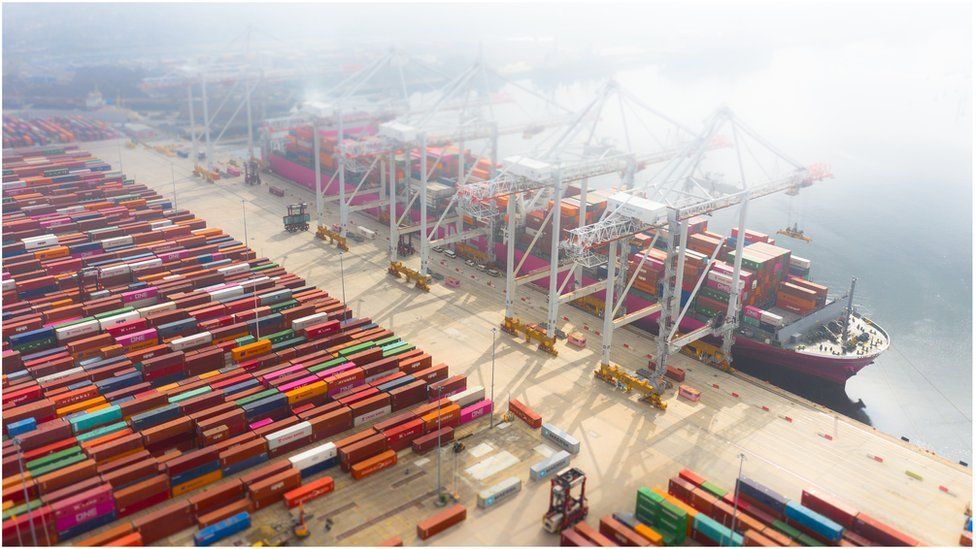ARTICLE AD BOX
 Image source, Getty Images
Image source, Getty Images
Ministers want to make trade cheaper and greener
The government is planning to make digital trade documents as legally valid as their paper-based equivalents.
It says many important documents currently have to be paper by law.
It estimates removing that requirement will save British businesses more than £1bn over 10 years.
The proposals for modernisation are set out in the Electronic Trade Documents Bill, which was introduced to Parliament on Wednesday, and praised by trade body Logistics UK.
It said the plans were a "positive step" towards simplifying border arrangements which, since Brexit, had seen a "significant increase in paperwork."
A Logistics UK spokesperson added: "We look forward to seeing effective implementation so that members can benefit from reduced costs and delays, supporting efficient trade facilitation."
The government says some business-to-business documents currently have to be paper-based because of laws which can date back as far as the 19th Century, such as the Bills of Exchange Act 1882.
With the proposals, it aims to cut processing times from days to a matter of seconds.
Commonly used documents in the UK for trade or transport of goods which the bill will enable to become electronic include:
- bill of exchange
- ship's delivery order
- warehouse receipt
- marine insurance policy
The bill, which has had its first reading, also aims to cut carbon emissions, by reducing the estimated 28.5 billion paper trade documents printed and flown around the world daily.
"We want to support businesses by cutting red tape and allowing them to sell their goods and products globally without burdensome bureaucracy," said Digital and Culture Secretary Michelle Donelan.
Chris Southworth, UK International Chamber of Commerce secretary general, described it as a "game-changer."
He added: "Trade plays a huge role in the global economy, so digitalisation is vital to establishing a more sustainable system."
Long way to go
Trade expert Lesley Batchelor said the UK going paperless was "great" - but pointed out there needed to be a reciprocating paperless system in the country being traded with for it to work.
She also said the documents covered in the legislation were only part of the process of exporting, especially for food and drink, which remained "very time-consuming".
"It will begin to streamline the way in which we do business, but there's a long way to go."
She also pointed to teething problems with post-Brexit trading arrangements, such as the Customs Declaration Service, which "wasn't going terribly well".
"The strange situation is the government keeps telling exporters that it's easy to export," she said.
"What we need to do is get all the messaging aligned and commit more resources to it."
The government said the bill would allow businesses to choose to use electronic trade documents, but would not force them to do so.

 2 years ago
61
2 years ago
61








 English (US) ·
English (US) ·